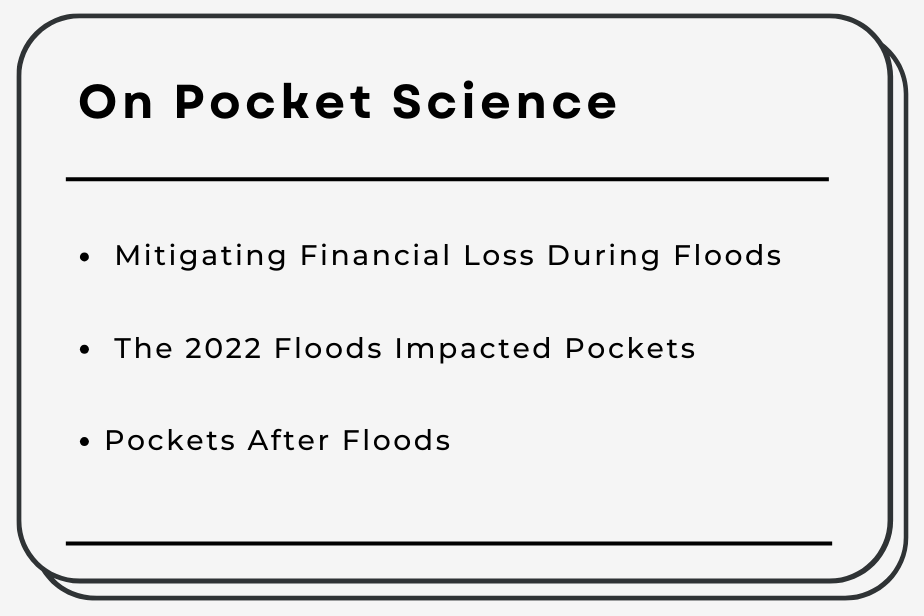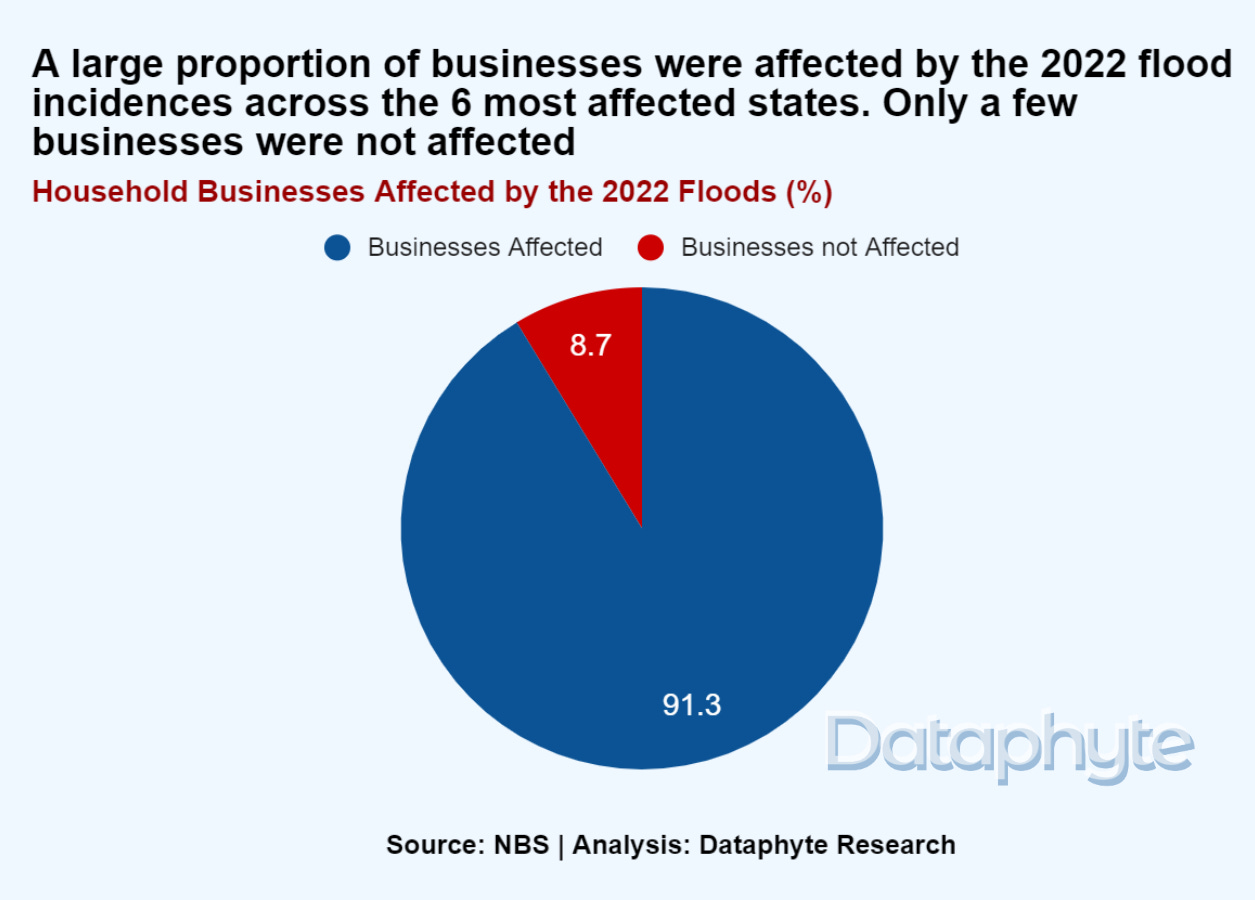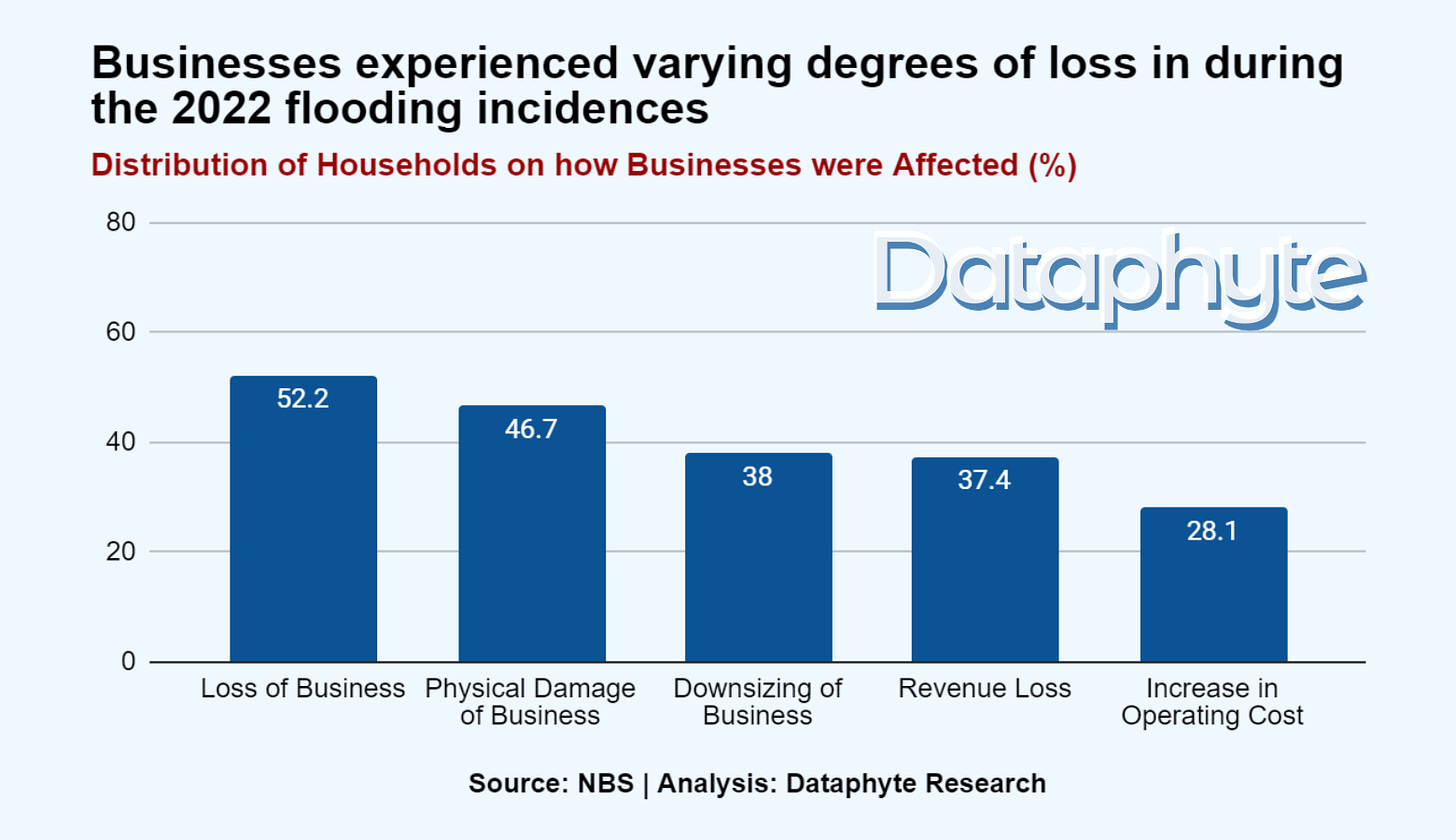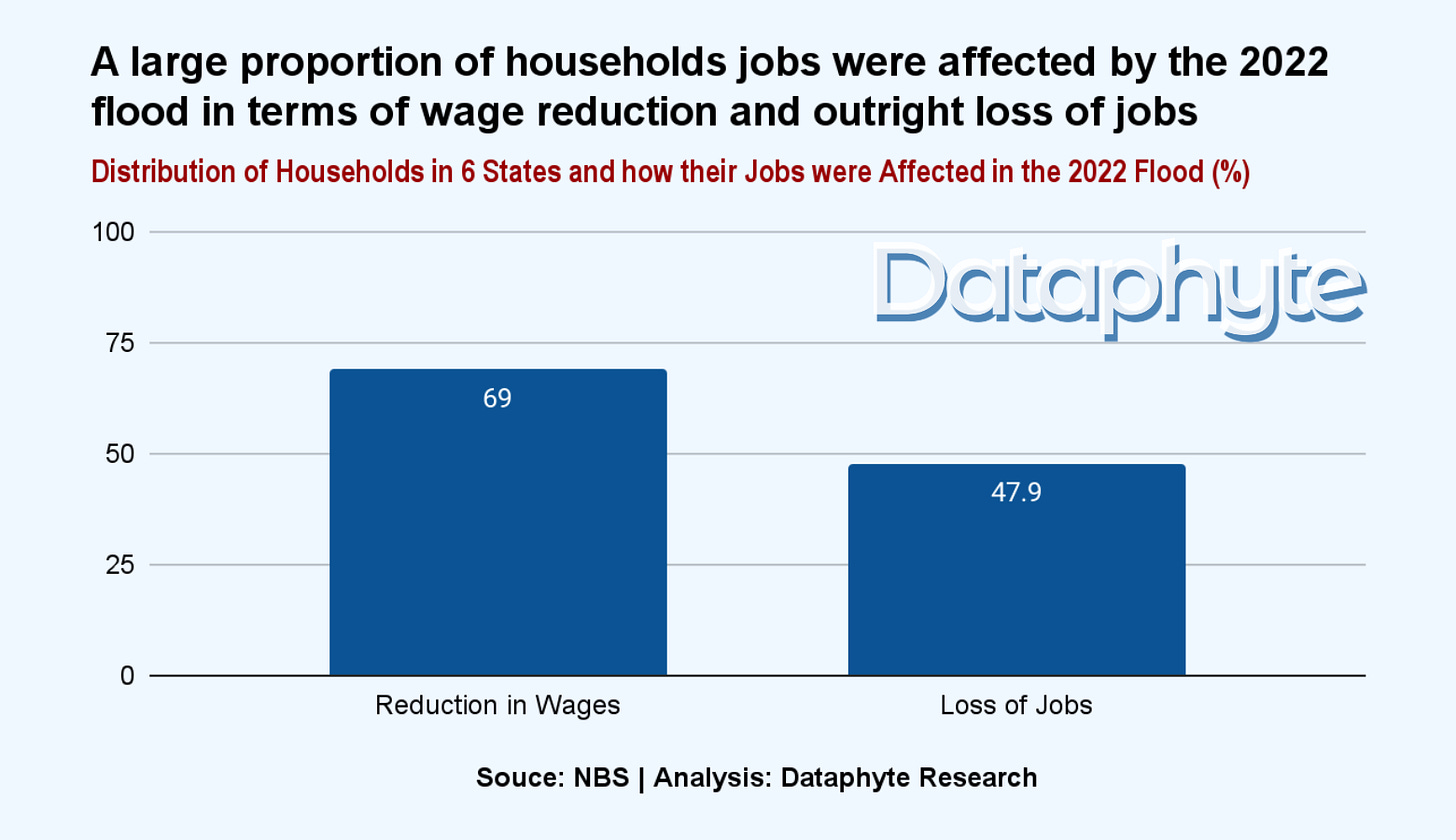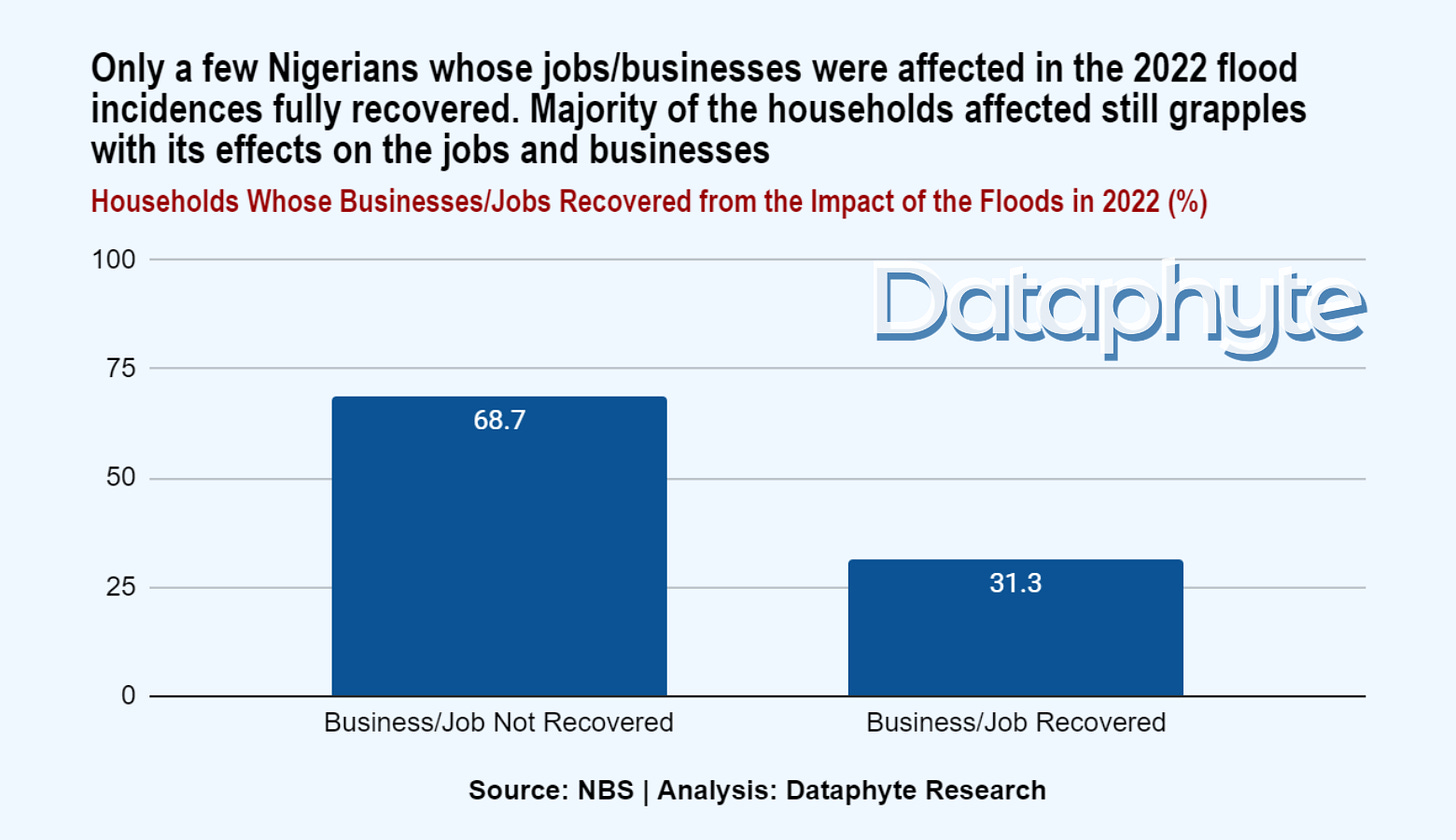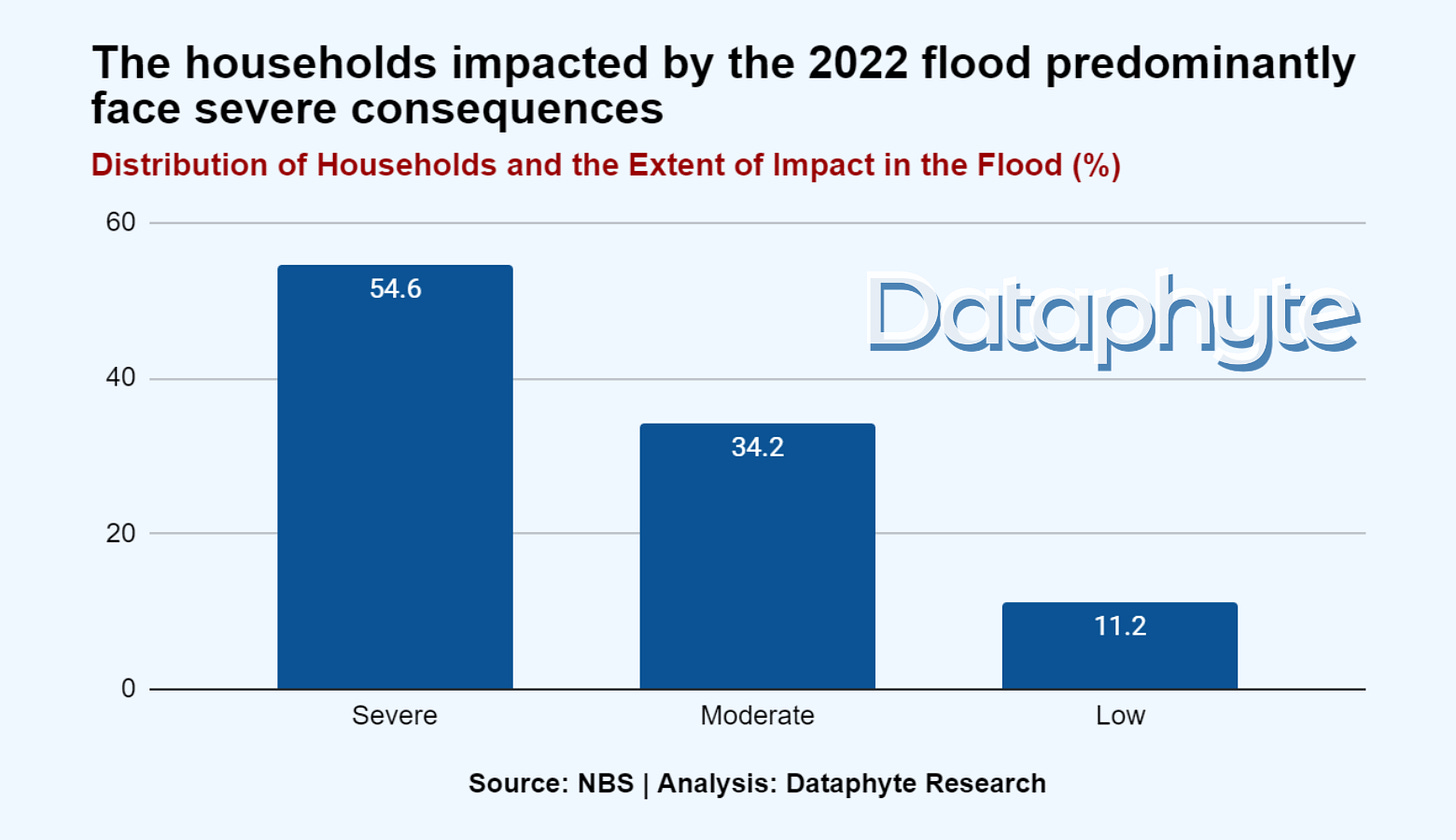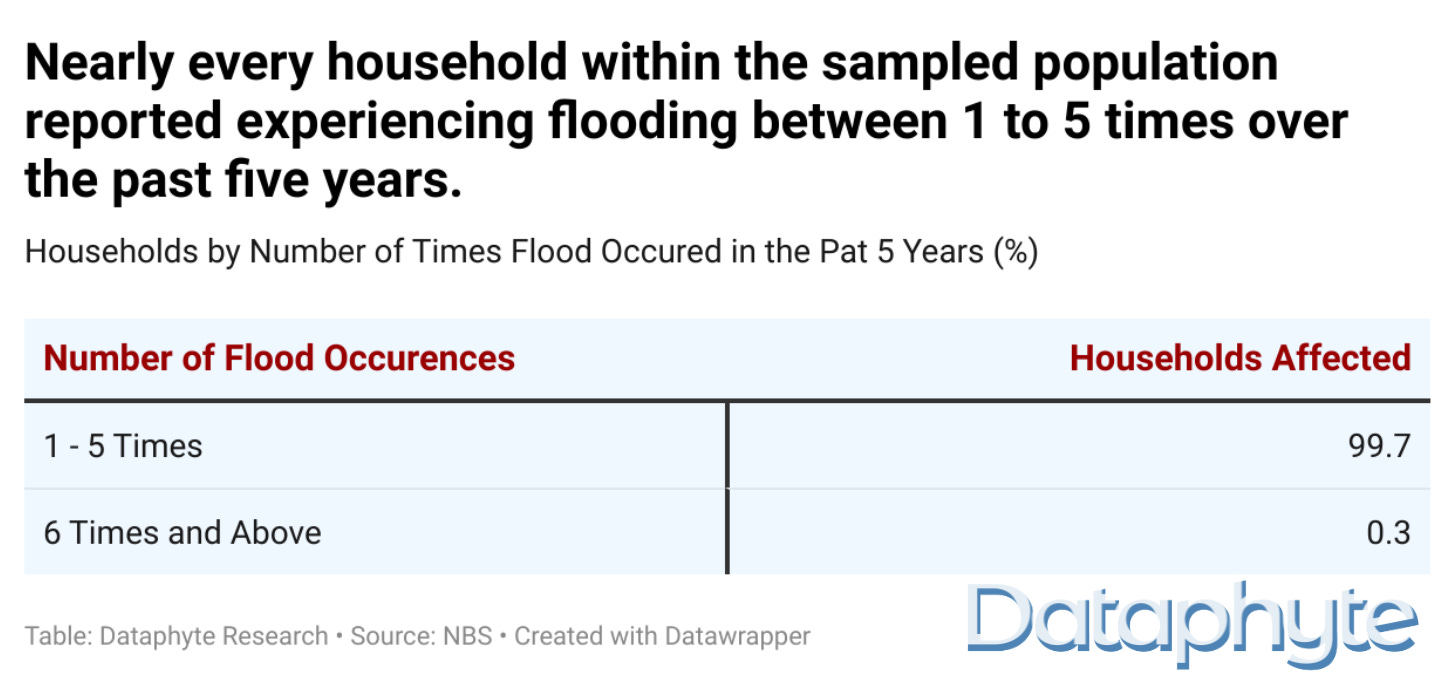Yet again, households in Nigeria may experience a strain in their pockets as imminent floods loom on the horizon.
Nigerians residing in 148 local government areas across 31 states are at risk of severe flooding this year and 249 LGAs in 35 states and the Federal Capital Territory (FCT) are within moderate flood risk areas, the 2024 Annual Flood Outlook (AFO) showed.
So far, cases of flooding have been recorded in 21 local governments in 11 states including Lagos, the FCT, Benue, Taraba, Nasarawa, Ogun, Osun, Edo, Kwara, Anambra, and Yobe, with attendant loss of lives and property.
This suggests that affected households may experience various levels of loss, ranging from business disruptions to job loss and financial instability, ultimately affecting livelihoods and sources of income.
This situation mirrors the challenges faced during the 2022 flooding experience.
The 2022 Floods Impacted Pockets
In 2022, numerous businesses in the six hardest-hit states in Nigeria suffered financial losses including full and partial business closures, increases in operating costs, revenue losses, and job losses.
Among the 3,600 households surveyed in the Flood Assessment Report, 91.3 percent reported substantial disruptions to their businesses.
That sounds like a lot!
These businesses recorded varying degrees of damage. There was a total loss of business, physical damage to structures, downsizing of the entire business, loss in revenue, and increase in operation costs.
Similarly, 80 percent of the respondents indicated that their jobs were affected by the floods.
In terms of the extent of the impact on their jobs, 69 percent reported wage reduction while 47.9 percent affirmed to outright loss of their jobs.
This trend illustrates the significant risks associated with disasters such as flooding, which can directly impact personal finances.
A reduced wage may strain the pocket after all!
And outright job loss? That may be a total drain on finances.
Businesses or jobs affected by these events often struggle to recover fully.
The case was not different for the households whose businesses and jobs were affected by the 2022 floods.
Only 31.3 percent of businesses/jobs affected fully recovered from the impact of the flood, and the remaining 68.7 percent still grapple with the effects.
Generally, across the affected states, households experienced varying levels of impact of the 2022 floods.
A higher proportion of the surveyed households experienced severe impact, with 54.6% severely affected, 34.2% moderately affected, and only 11.2% experiencing minimal impact.
With such widespread impact from the 2022 floods, what can we expect for this year? Especially considering that the Flood Outlook has identified flood-prone areas across the states of the federation.
Many of the flood incidents in 2022 are recurring.
Nearly every household within the sampled population reported experiencing flooding between 1 to 5 times over the past five years.
The Nigeria Flood Impact, Recovery, and Mitigation Assessment Report 2022-2023 shows that the 2022 flood resulted in significant loss of lives and livelihoods, along with disruption to essential services and economic activities. Both the agricultural and non-agricultural sectors were heavily impacted, leading to considerable income losses and jeopardizing food security and income sources.
The assessment covered six states – Anambra, Bayelsa, Delta, Jigawa, Kogi, and Nasarawa – which account for a significant proportion of the total population affected by the 2022 floods.
These incidents hint, at first, at a pattern of systemic environmental challenges and possibly a situation downplayed that worsened over time.
Pockets After Floods
On the one hand, the government and relevant stakeholders need to continue to deploy measures to address long-term solutions and mitigation strategies to reduce future impacts and ensure resilience against similar disasters.
In the short run, however, individuals and households can manage flooding and its attendant risks.
Households in flood-prone areas across states need to consider designing emergency protocols to manage flooding. This may include the following:
Households living in flood-prone areas may consider getting insured by opting for premium packages that can cover their loss in the event of disasters. This mitigates financial losses to flood events
Keeping up-to-date with local weather forecasts and flood warnings can also inform households' decisions on preparedness and prevention of avoidable losses. The Nigerian Meteorological Agency and Nigeria Hydrological Services Agency are relevant bodies for this. They publish weather forecasts, flood predictions, and warnings against disasters.
Households need to sign up for alerts and have a plan in place for evacuation if needed. The loss of a life is the greatest cost of a flood.
Thank you for reading this edition of Pocket Science. It was written by Funmilayo Babatunde and edited by Oluseyi Olufemi.



